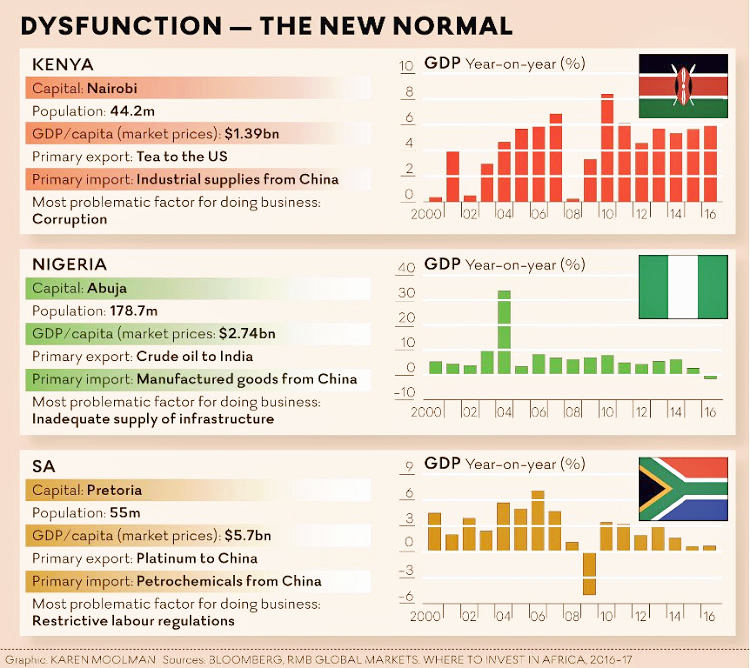PBS: Escaping Eritrea … [Read More...] about ካብ ውሽጢ ቤት ማእሰርታት ኤርትራ
Africans from other countries have voiced concern about SA’s trajectory. The Nigerians are sounding the loudest warning, saying that self-interested leadership breeds endemic corruption. It is not difficult to end up in a situation where the very people who can effect change won’t do so because they are benefiting from the status quo. The taint of corruption has undermined Nigerians’ trust in the ability of their institutions, politicians, the judiciary, police and even the country’s main corruption-fighting body to deliver efficiently and without bias or hidden agendas.
Bureaucracies have become a menace in Africa. Not only do they swallow the largest chunk of scarce resources without attendant productivity, the moral laxity at the top of the pile tends to trickle down into the service.
Transparency International says that in 2015, an estimated 75-million Africans paid bribes, many of them to get access to basic services. Many also paid bribes to escape punishment by the courts or police who are generally regarded as the most corrupt group. In Zimbabwe, 92% of people view the police as extremely corrupt while 75% in Kenya feel the same way.
It is common to hear Africans described as being resilient, made so by their often difficult and unpredictable circumstances. The ability of people to adapt to incremental hardship has made dysfunction seem almost normal. It also gets poorly performing governments off the hook — the expectation of public service delivery diminishes over time.

